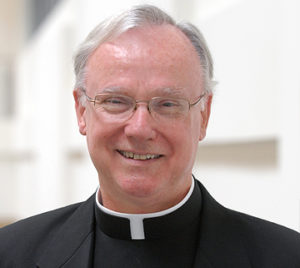
First Reading: Wisdom 11: 22-12:2
Responsorial Psalm: Psalm 145: 1-2, 8-9, 10-11, 13, 14
Second Reading: 2 Thessalonians 1: 11-2:2
Gospel: Luke 19: 1-10
Going to the “Existential Peripheries”
When speaking of the church’s mission to the world, Pope Francis likes to use the phrase, “the existential peripheries.” The church should not be turned in on itself but should reach outward to the world it is called to serve, particularly to those who are suffering. In a recent homily the Pope noted that those who “suffer” includes not only those suffering physical or economic pain but also those who suffer from “intellectual” or spiritual poverty — that is, people turned in on themselves and unable to reach out to the world around them. “Proclaiming the Gospel,” the Pope noted, “means that we must go towards the flesh of the suffering Jesus but Jesus’ flesh also suffers in those who don’t know it, with their studies, their intelligence, their culture…All the outskirts, all the intersection of paths: go there. And there sow the seed of the Gospel by word and by witness.”
The pope’s words echo both the gospel passage for this Sunday and the striking first reading from the Book of Wisdom. In an exquisite passage, the Book of Wisdom marvels at the awesome and infinite beauty of God. Yet even though compared to God’s almighty power, our whole universe is no more than “a drop of morning dew,” God “has mercy on all…and “overlooks” people’s sins that they may repent. God’s love embraces all of reality: “For you love all things that are and loathe nothing that you have made…” Even when we humans fail, God’s mercy is patient and encourages us to repent and be healed. “But you spare all things, because they are yours, O Lord and lover of souls, for your imperishable spirit is in all things.”
As is often the case, the response from Psalm 145 echoes this spirit of praise for God’s overwhelming mercy: “I will praise your name forever, my king and my God.” “The Lord is gracious and merciful, slow to anger and of great kindness. The Lord is good to all and compassionate toward all his works…” “The Lord lifts up all who are falling and raises up all who are bowed down.”
And once more in our gospel for today Luke gives us an exceptional glimpse into the merciful kindness of Jesus himself, a sense of compassion that radiates the divine spirit praised in the prior readings. In a scene unique to Luke’s Gospel we witness the remarkable encounter between Jesus and Zacchaeus, a “chief tax collector and also a wealthy man.” Jesus is passing through Jericho, the lush oasis in the Jordan valley, on his way up the slopes of the rift valley to Jerusalem. Luke notes that Zacchaeus was short of stature and, because of the crowds, he must climb a sycamore tree in order to see Jesus as he passed by. Amazingly, Jesus stops, looks up at Zacchaeus in his perch, and invites himself to stay at the wealthy tax collector’s house. While Zacchaeus is overjoyed, the townspeople grumble, “He has gone to stay at the house of a sinner.” Tax collectors were notorious for exploiting the poor in assessing taxes and tolls for their Herodian overlords.
But Zacchaeus is deeply moved by Jesus’ outreach to him. He offers to give half of his possessions to the poor and to make amends four times over to those he has extorted. Jesus praises Zacchaeus and shows him respect despite his failings: “Today salvation has come to this house because this man too is a descendant of Abraham. For the Son of Man has come to seek and to save what was lost.”
Zacchaeus, too, was on the “existential peripheries” — financially rich but spiritually poor. Jesus’ compassion for Zacchaeus is meant to be an assurance of God’s forgiveness for us as sinners, too. But, equally important, reminds us, as “missionary disciples” (another trademark designation by Pope Francis), that we are to reach out to those in need — to the sick, the poor, but also to those whose lives may be successful in many ways but impoverished by a lack of meaning.
Rev. Donald Senior, CP
President Emeritus
Chancellor
Professor of New Testament